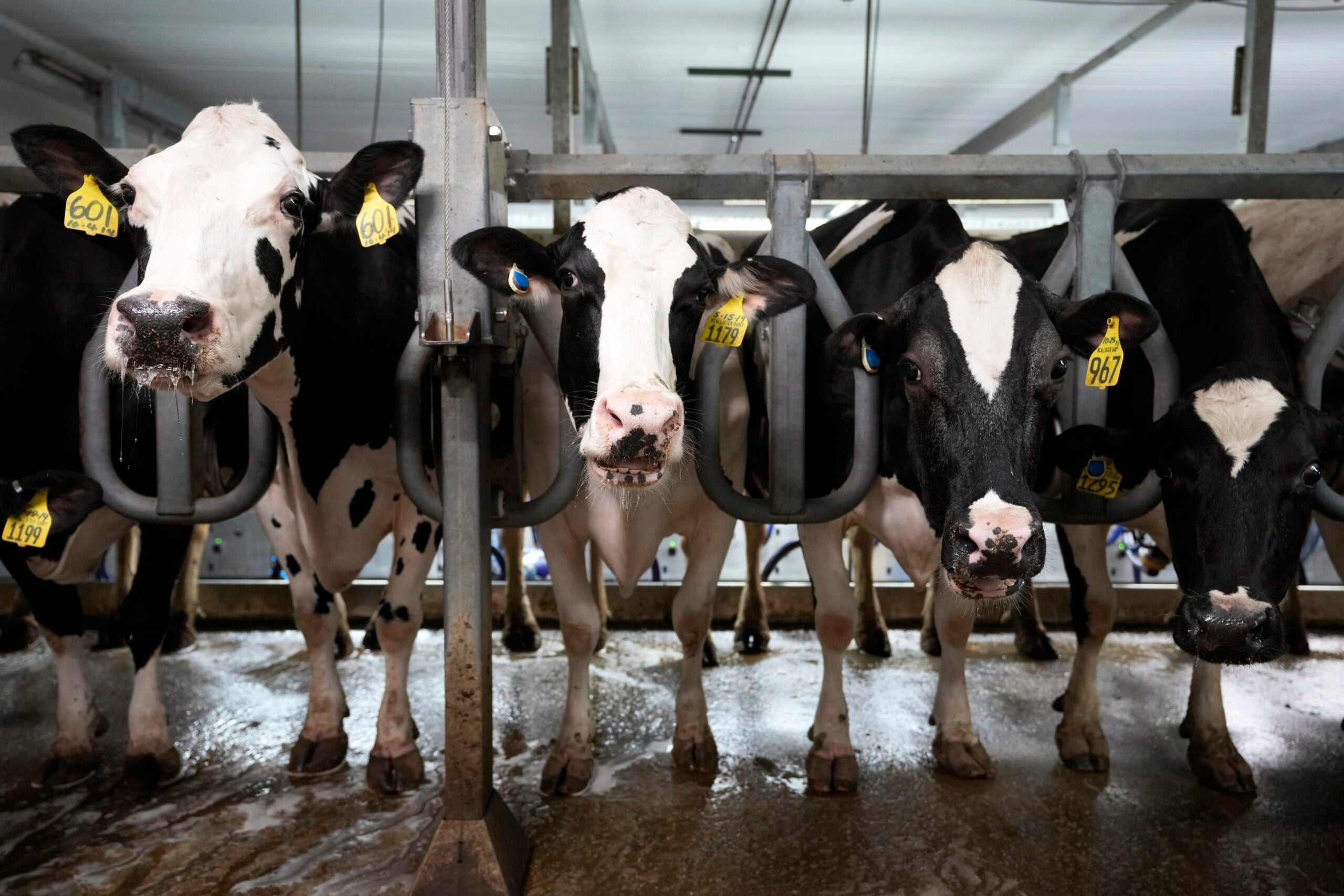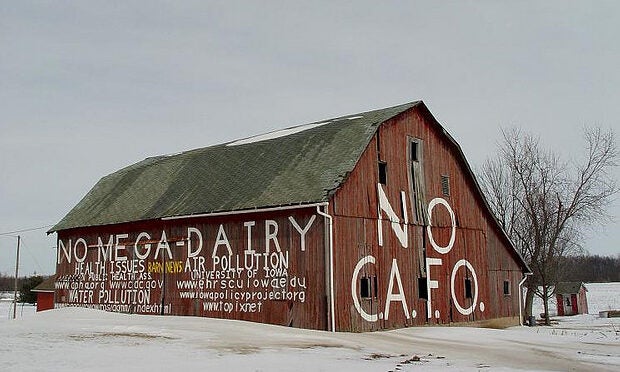A Republican bill moving through the Legislature would prevent local governments from pursuing more stringent regulations overseeing farms and animal welfare.
State Sen. Romaine Quinn, R-Cameron, and Rep. Treig Pronschinske, R-Mondovi, are among lawmakers sponsoring the legislation. A companion bill passed the Assembly in February.
The proposal would bar local governments from enacting local regulations for farms or commercial operations, including concentrated animal feeding operations, or CAFOs. The restrictions would apply in areas zoned primarily for agricultural use. It would also apply to all types of animals or animal operations, including dog breeding facilities.
The proposal would also prevent local governments from setting stricter animal welfare standards.
Quinn told the Senate’s sporting heritage committee Tuesday the bill is aimed at preempting potential problems that farmers could encounter, citing an influx of outside residents during the COVID-19 pandemic.
“As we continue to have people that have no agricultural background starting to sit on our municipal councils or township boards or county boards, we don’t need them trying to regulate our farms in a manner that goes against what current practice has always been,” Quinn said.
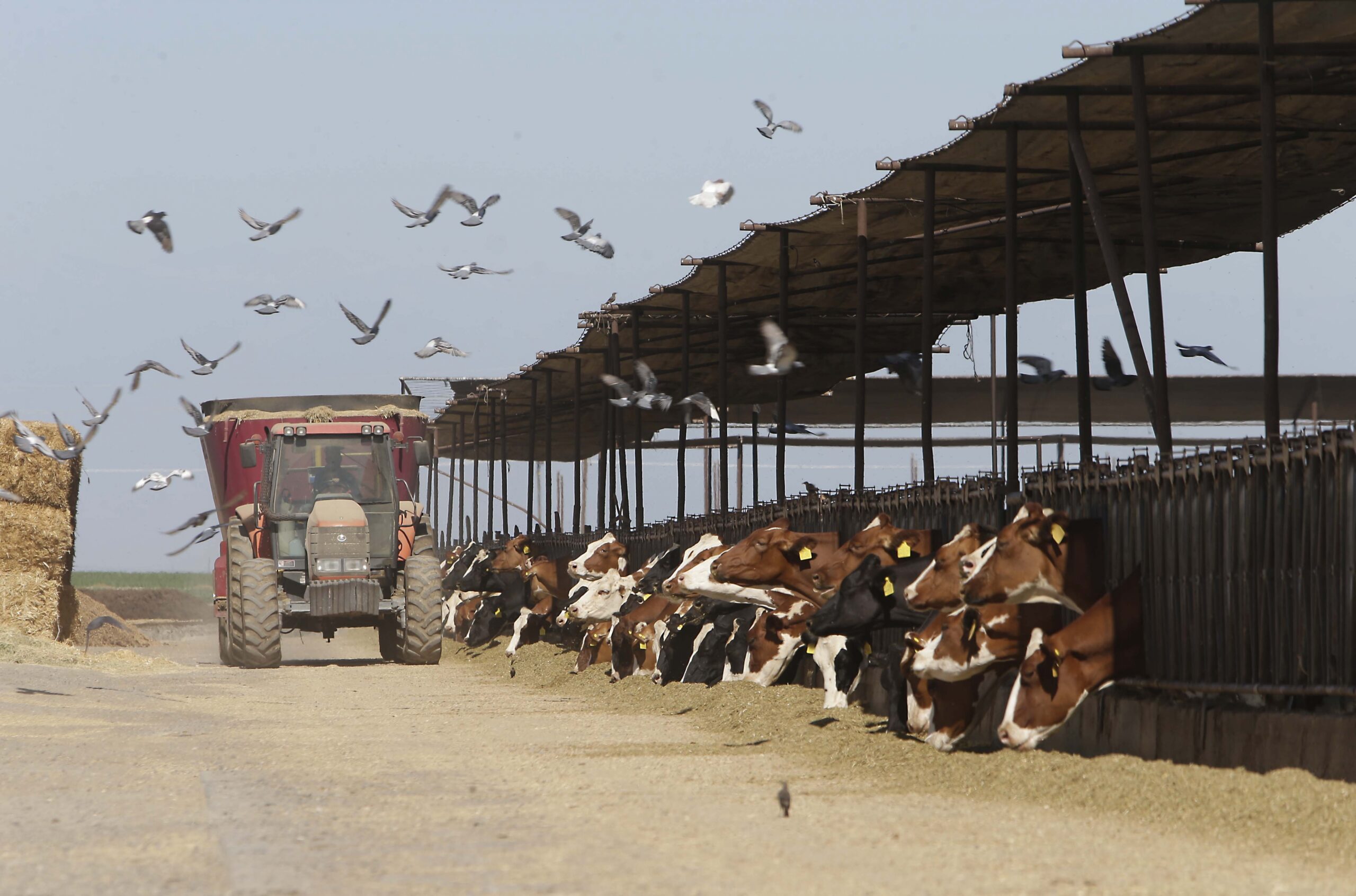
California standards, local ordinances prompted the bill
News with a little more humanity
WPR’s “Wisconsin Today” newsletter keeps you connected to the state you love without feeling overwhelmed. No paywall. No agenda. No corporate filter.
The bill comes as California has adopted a voter proposition that requires more space for egg-laying hens, breeding pigs and calves. The proposal is in response to concerns about the treatment of farm animals and their living conditions.
Tim Fiocchi, senior government relations director with the Wisconsin Farm Bureau Federation, acknowledged Wisconsin isn’t a state where voters can bypass the Legislature and governor by proposing such ballot measures. Even so, he said Wisconsin farmers and the state’s $105 billion ag industry lack protection from “disruptive local ordinances” that could impose new requirements on their operations.
He pointed to a local ordinance in the small community of Laketown in northern Wisconsin that attempted to regulate pollution, odor and other aspects of large livestock farms or CAFOs. The ordinance came in response to plans by Cumberland LLC to build a farm for up to roughly 26,000 pigs. The town was later sued by residents represented by Wisconsin Manufacturers and Commerce, or WMC. New leaders in the community ultimately rescinded the ordinance.
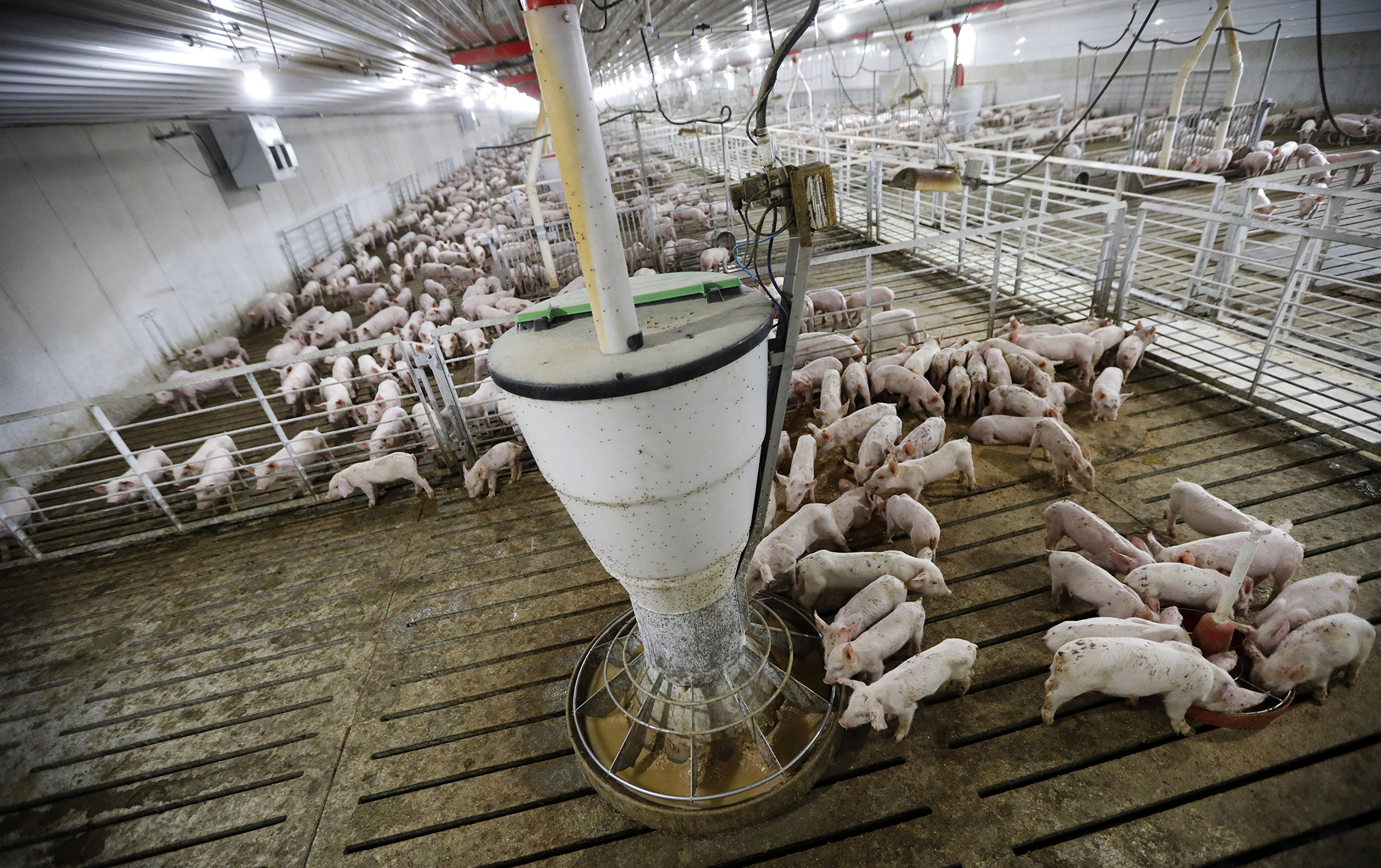
“These types of laws could develop a patchwork of regulatory hurdles that differ by town or county, thereby creating new challenges for farmers as well as the industry supporting agriculture, forcing them to quickly adapt to new requirements, which may necessitate costly modifications to existing facilities, and changes in farming practices,” Fiocchi said.
He told lawmakers local regulations could potentially put smaller farms out of business. The Farm Bureau was among those who joined in the lawsuit filed by the WMC Litigation Center. They argued the ordinance was preempted by state law and would have reduced potential for future expansion.
Sen. Mark Spreitzer, D-Beloit, cited California’s standards as a red herring that’s meant to scare people, and questioned whether Fiocchi could point to other examples similar to Laketown.
“I understand there’s a fear of more. Is there anything else to indicate the fear of more is justified?” Spreitzer asked.
Fiocchi said it’s a preemptive bill that is not a solution in search of a problem.
“This is a problem that we’re just trying to get ahead of,” Fiocchi said.
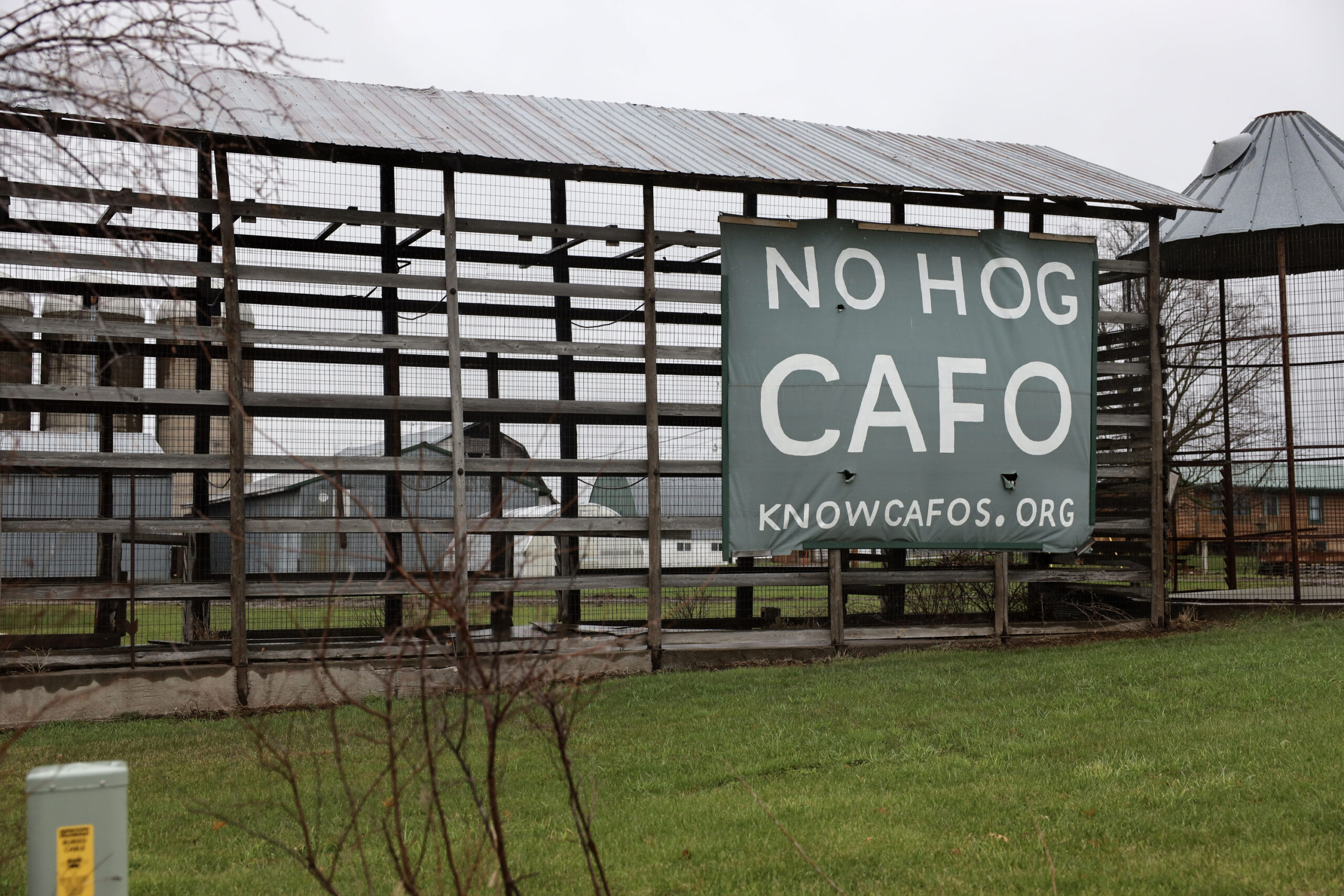
Farm groups, bear hunters support the legislation
The measure is supported by multiple farm groups, including the Wisconsin Dairy Business Association, Wisconsin Dairy Alliance and Venture Dairy Cooperative.
Earlier this year, a Calumet County judge ruled against the Wisconsin Dairy Alliance and Venture Dairy Cooperative in a case that challenged whether large farms should be required to obtain wastewater discharge permits prior to any evidence that shows they’re polluting Wisconsin waters. The two groups said they wanted to change the presumption that CAFOs are polluters, but environmental groups argued the legal challenge threatened to undermine protections for the state’s waters.
The legislation is also supported by the Wisconsin Bear Hunters Association. Bob Welch, the group’s lobbyist, said it favored the bill as some communities have sought to regulate hunting dogs in an attempt to ban hound hunting.
“We don’t need more local rules that would make it very difficult for farmers and difficult for our hunting heritage,” Welch said.
Animal protection, wildlife advocacy groups oppose the bill
Animal protection and wildlife advocacy groups have registered against the bill, including the Humane Society of the United States. Megan Nicholson, the group’s Wisconsin State Director, said in written testimony that the legislation is an attack on animals, consumers and local governments.
“While (the bill) may appear to target local regulation of farms, its broad language would likely reward a wide range of potential bad actors by shielding them from local oversight, including: puppy mills, puppy-selling pet stores, facilities that breed and sell dogs, like beagles, for research, pet trainers, boarding facilities, or daycare operators, and those that breed, house, or display dangerous wildlife,” Nicholson said.
The group argued the legislation would also protect roadside zoos and other industries that use captive wild animals, placing public health and safety at risk.
Under the bill, local governments wouldn’t be able to regulate what species of animals are allowed within agricultural zoned areas. The legislation would also prevent enforcement of existing regulations that conflict with the bill unless there’s a substantial threat to public health and safety.
Editor’s note: An earlier version of this story reported that Laketown rescinded the ordinance after being sued by WMC. It has been updated to reflect that new leaders rescinded the ordinance.
Wisconsin Public Radio, © Copyright 2025, Board of Regents of the University of Wisconsin System and Wisconsin Educational Communications Board.





